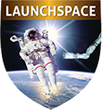Course Details
Course Summary
This course is offered to those interested in spaceport concepts, new spaceport planners and users. Topics of discussion include the advantages and disadvantages of site selection, economic expectations and public/private decisions that affect spaceport development. Benefits and responsibilities of owning, designing, developing and operating commercial or state-owned spaceports for commercial and government launch operations are explored. The course includes case studies, analyses of industry and government spaceport considerations, and identification of synergies that may develop. Upcoming developments within the global space industry that affect spaceport locations, success criteria and effective operations are presented. Current and forthcoming U.S. policy and transitioning stakeholder acceptance of working spaceports are discussed.
Course Materials
Attendees receive complete study and reference materials and individual Certificates of Completion.
Who Should Attend
What You Will Learn
Course Outline
1. Spaceports are defined by the eye of the beholder
- This section will define ‘spaceport,’ laying out the thought process for successful spaceport designs and construction campaigns
- Identification of spaceport stakeholders and purposes for spaceports
- State, local and federal expectations
- Regulatory agencies, processes and procedures
- Feasibility study requirements as well as economic development planning
- Relevant state and federal organizations
- Timelines and managing public expectations
- Importance of local, state and federal legislatures as critical enablers
2. You pay for what you get- the cost of operating a spaceport
- Key decisions that determine what the spaceport will look like, including commodities, utilities and required infrastructure
- Long term spaceport sustainability
- Advantages and disadvantages of locations near federal and state ranges
3. How will you finance the spaceport
- Financial opportunities in locating, designing, building and operating a spaceport
- Economic drivers and state, local and federal commitments
- Revenue production and return on investment
- Size and purpose of the spaceport vis-à-vis financial obligations
- Overhead requirements versus user operational requirements
- Performing a cost-benefit analysis
- Impacts of having partnerships, in-kind contributors and anchor tenants
4. Spaceport Myth 101: If you build it, they will come
- Who are the target stakeholders
- Commercial launch and spaceport business forecasts
- Current and future prospects for operating a viable spaceport
- Successful and failed strategies
- Trade-off between smarter infrastructure designs and existing resources
5. The pros and cons of responsibility and liability
- Requirements for regulatory, safety and environmental reporting
- Identifying dependable resources and talent for sustainment and operations
Instructor

KD Barker has provided leadership for over 25 years on spaceport projects and launch programs. She created economically viable, revenue producing concepts in spaceport development. Her work has enabled varieties of space launch and landing initiatives, many providing a means for commercial launch business activities, enhancing commercial space development. She has been a Congressional Fellow in Washington, DC and worked in the Departments of both Commerce and State offices concerning space commercialization. Her experience ties in programs from NASA, Defense/DARPA, Dept of Transportation’s FAA Office of Commercial Space, and NOAA to several major space ranges and spaceports. She has influenced the development of spaceports in the states of Florida, California, Hawaii, Virginia, New Mexico, Alaska and country of Brazil. She was a launch engineer for the Space Shuttle, Delta and Atlas programs, as well as other missile, rocket and aerospace programs. She directed crews in providing technical engineering and spacelift support to the 45th Space Wing at Cape Canaveral, FL. She holds Master of Science Degrees in space systems and systems management from Florida Institute of Technology.
